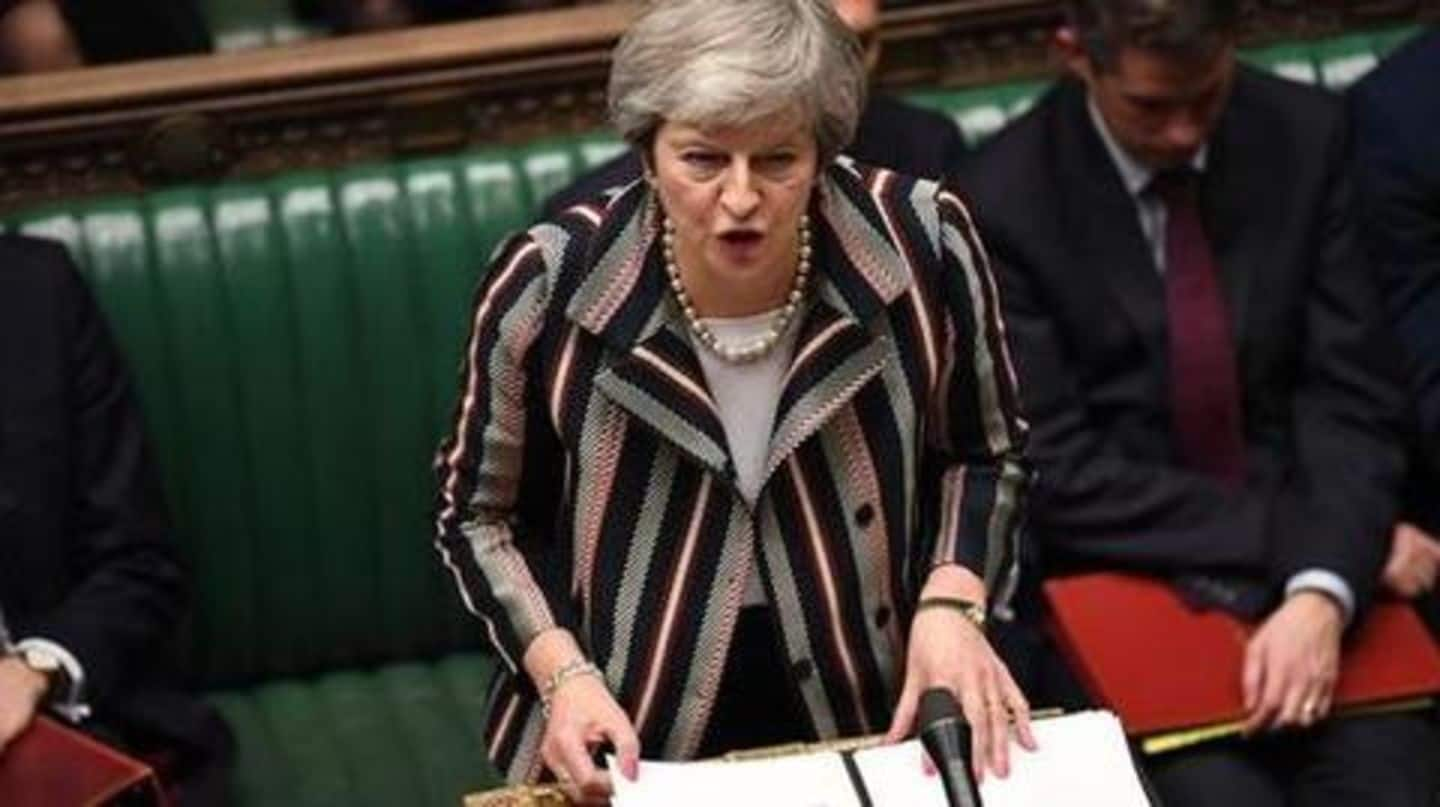
British PM May comes under fire over EU exit deal
What's the story
British Prime Minister Theresa May faced parliamentary fury yesterday as she set off on the tricky task of convincing mutinous lawmakers to back her divorce deal with the European Union (EU).
The British leader crowned nearly two years of painful talks with Brussels that threatened to fall apart many times by sealing Brexit arrangements on Sunday with the 27 EU heads of state.
Information
May announced vote on deal will be on December 11
But this difficult chapter was always going to be the easy part. May must now navigate the deal through a divided chamber where she holds the slimmest working majority, and where lawmakers oppose it wholly. She announced the deal vote will be on December 11.
Opposition
Deal is an act of national self-harm: Labour Party Chief
The beleaguered leader got a taste of just how tough her job will be as she briefed lawmakers on the outcome of her Brussels visit.
Opposition Labour Party chief Jeremy Corbyn called the withdrawal deal and accompanying political declaration on future relations "an act of national self-harm".
"For the nation's good, the House has very little choice but to reject this deal," he said.
No support
May also battles resentment from her own Conservative Party
Yet May might be more disconcerted by the seemingly growing and clearly more vocal resentment from her own Conservative Party.
Conservative MP Mark Francois told May her deal was "as dead as a Dodo".
Former May loyalist Michael Fallon said the government was asking parliament to "take a huge gamble" and "surrendering EU vote and our veto without any firm commitment to frictionless trade".
Vote counts
Many expect the deal to fail the first time around
After an hour, the first member of her own party stood up to voice her support for the Prime Minister.
The current vote counts conducted by British media are not stacking up in May's favor.
Many expect the deal to fail the first time around.
She has to call a second vote before the chamber breaks for the winter holidays.
Argument
If deal fails second time, Britain would face new elections
Britain would be entering unchartered waters, and quite possibly new elections if the deal fails a second time around.
Brexit enters into force on March 29 and May's government is also making "no-deal" preparations just in case.
May argued yesterday that people "want us to get on with a deal that honors the referendum and allows us to come together again as a country."
Information
EU foes accusing May of ceding too much to Brussels
EU foes in May's Conservative Party accuse her of ceding too much to Brussels while the Labour opposition argues that deal will devastate the British economy. But both Brussels and May said the deal now on the table is final.
Action
May to launch intensive campaign to promote the deal
"We don't want to give the wrong impression to people, whether they are passionate Remainers or passionate Brexiteers, that there is another agreement that can command the support of 28 member states. There isn't," Irish Prime Minister Leo Varadkar said.
May will now embark on an intensive nationwide campaign to promote the deal with voters across the country and lawmakers in London.
Plans
May plans briefings and meetings to seek support for deal
The government was to hold a special briefing on the Brexit deal for Labour MPs, an unusual but not unprecedented move.
May will also meet over 100 big business leaders to seek their support.
But the Labour Party chief yesterday cited a fresh economic study showing that British growth is slowing sharply under the plan prepared by May's government.
Consequences
Loss after Brexit will be $1,300 per year per person
The independent National Institute of Economic and Social Research found that trade with EU was likely to be more costly after Brexit and will affect living standards.
"GDP in the longer term will be around 4% lower than it would have been had UK stayed in the EU," the report said.
It estimated that the loss equaled around £1,000 ($1,300) per year per person.